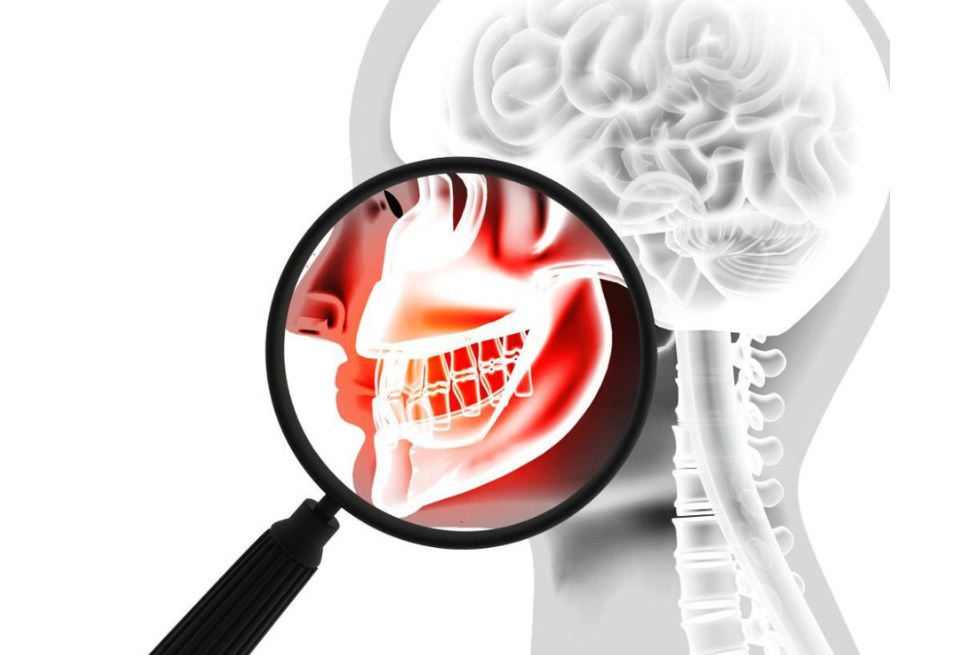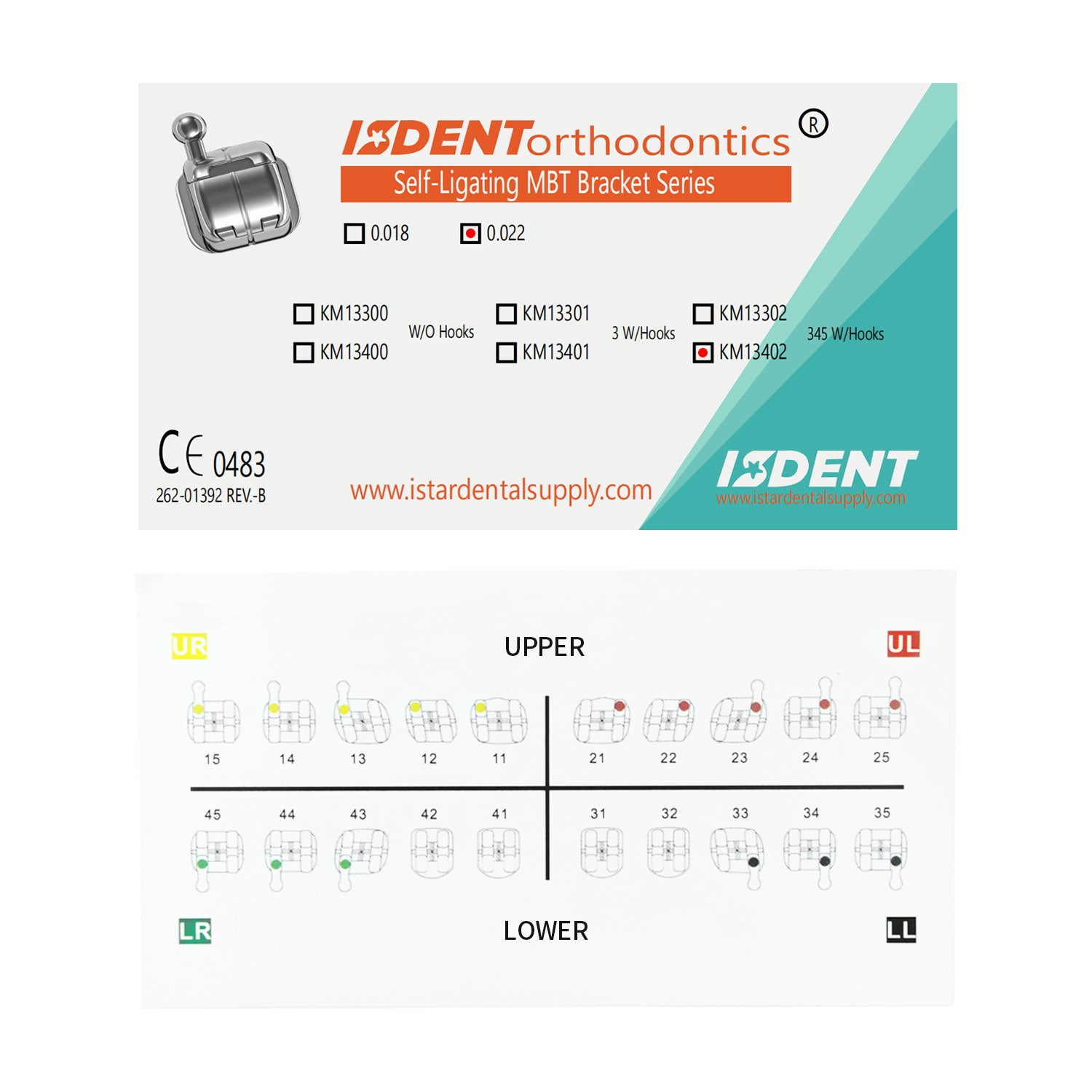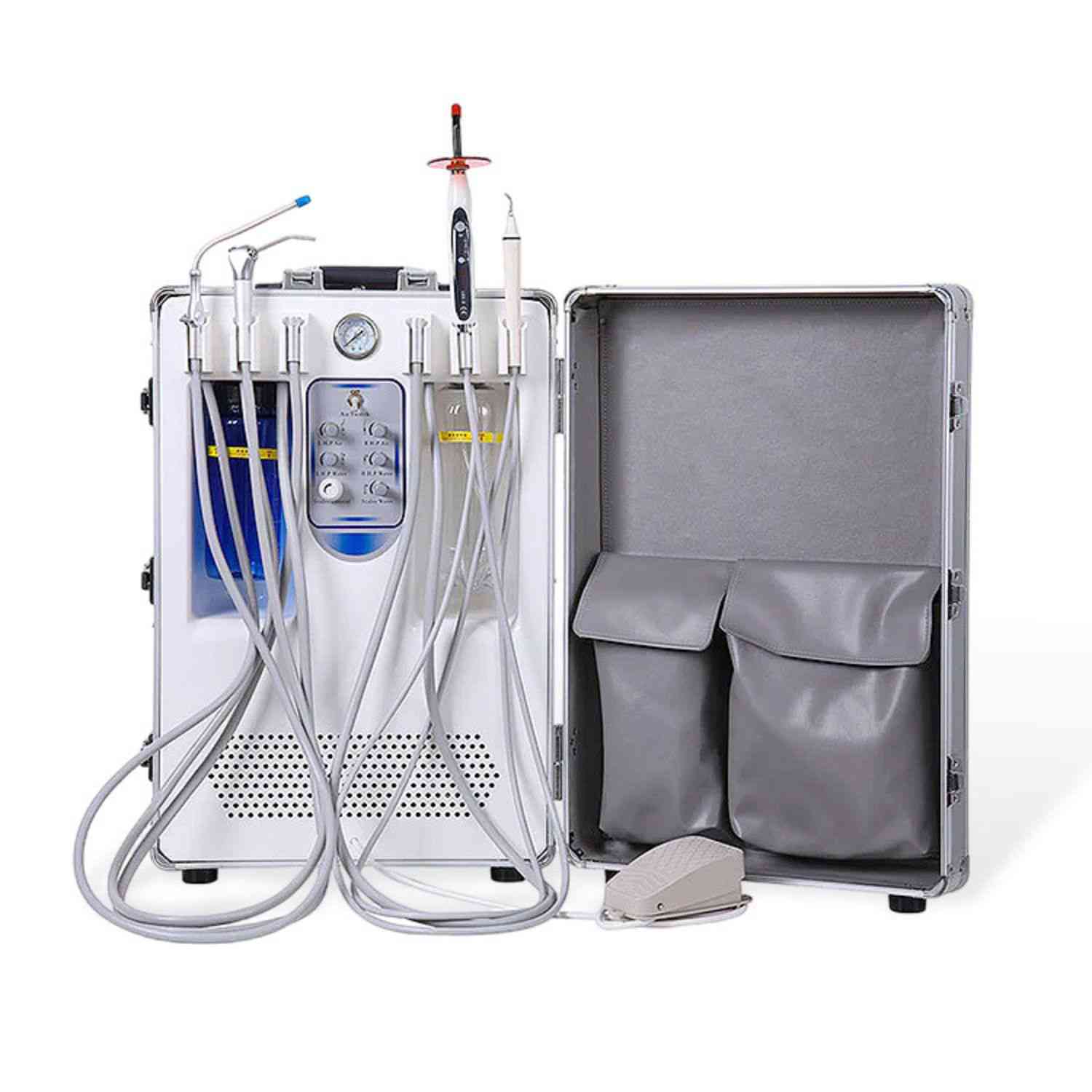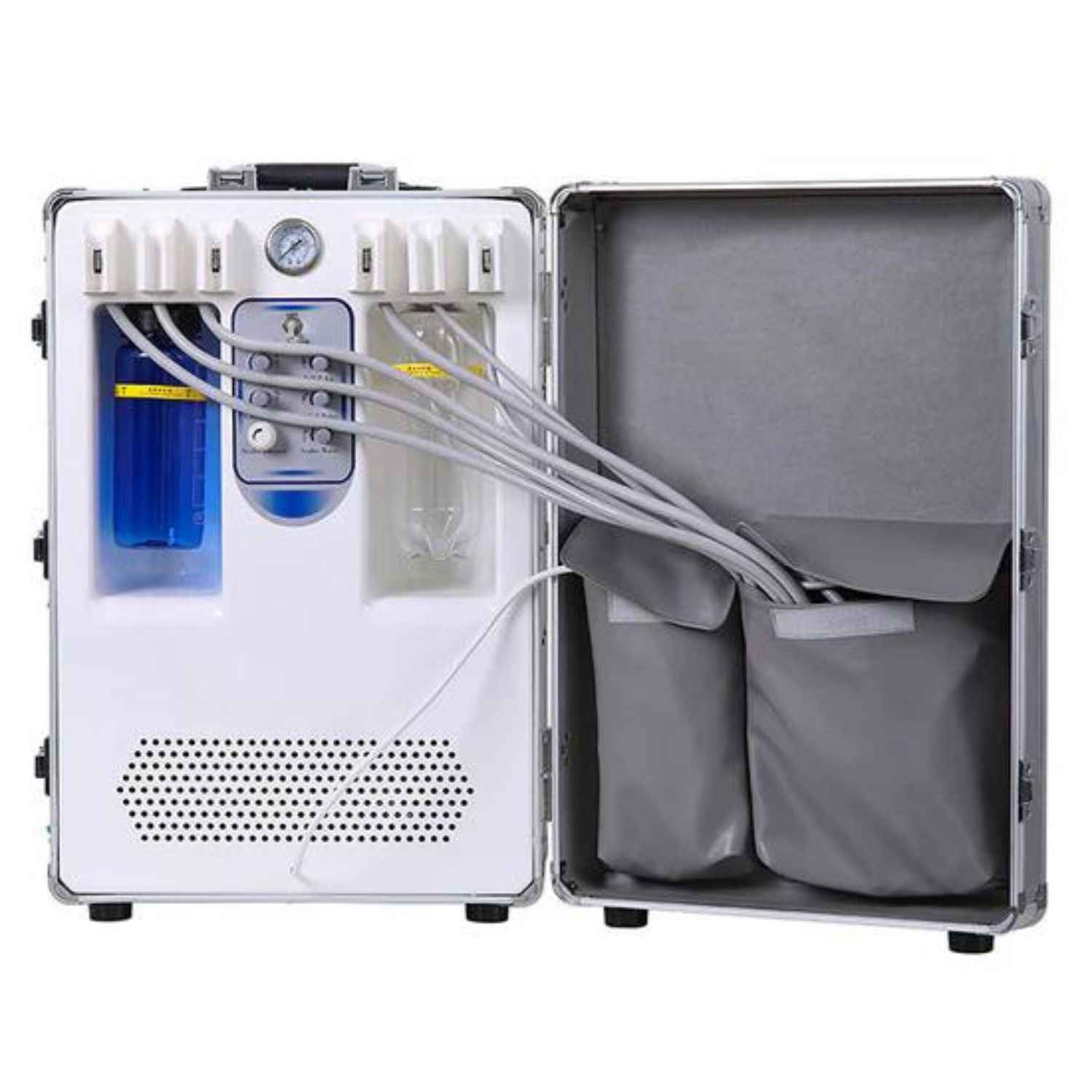What Is TMJ Disorder? Understanding Jaw Pain and Treatment Options
Is your jaw making clicking sounds? Do you feel pain when you chew or talk? You might have a TMJ disorder. This problem affects millions of people but many don't know what it is or how to fix it.
What Exactly Are TMJ Disorders?
TMJ stands for temporomandibular joint. Think of it as the hinge that connects your jaw to your skull. This joint works with muscles to help you chew, speak, and yawn.
When something goes wrong with this joint or the muscles around it, doctors call it a TMJ disorder. These problems can cause pain and make it hard to move your jaw.
There are different types of TMJ disorders:
- Muscle-related pain (also called myofascial pain)
- Joint-related problems (like when the disc in the joint moves out of place or you have arthritis)
- Combined conditions (when both muscles and joints have problems)
More than 10 million Americans have TMJ issues. That's a lot of people with jaw pain!
Top Symptoms to Watch For
How do you know if you have a TMJ disorder? Look for these common signs:
- Jaw pain or tenderness (especially when you chew or open your mouth wide)
- Clicking or popping sounds when you open or close your mouth
- Locked jaw or limited movement (your jaw might get stuck open or closed)
- Headaches and earaches (often happening together with jaw pain)
But TMJ disorders can cause some surprising symptoms too:
- Tinnitus or ringing in the ears (33-76% of TMJ patients have this)
- Neck pain that might feel connected to your jaw pain
- Dizziness in some cases
Many people don't realize these symptoms can all come from jaw joint problems!
Causes & Risk Factors
What causes TMJ disorders? Several things can trigger them:
Physical Triggers:
- Teeth grinding (also called bruxism) - many people do this while sleeping
- Arthritis in the jaw joint
- Jaw injury from accidents or impacts
- Misaligned bite (when your teeth don't come together correctly)
Lifestyle Factors:
- Chronic stress that makes you clench your jaw
- Poor posture that puts strain on your neck and jaw
TMJ disorders also often show up alongside other conditions like fibromyalgia and sleep apnea.
The numbers show interesting patterns in who gets TMJ disorders. According to research, women are 2-8 times more likely than men to develop these problems. Scientists aren't completely sure why.
How TMJ Disorders Are Diagnosed
If you think you might have a TMJ disorder, here's how doctors figure it out:
Step 1: Clinical Exam
Your doctor or dentist will:
- Feel your jaw joints and muscles
- Listen for clicking or popping
- Check how well your jaw moves
- Look at how your teeth fit together
Diagnostic Tools
For more serious cases, your doctor might use:
- X-rays to see the bones
- MRI or CT scans to check soft tissues and disc position
- Special criteria called DC/TMD (Diagnostic Criteria for Temporomandibular Disorders)
Getting the right diagnosis is super important. Studies show many TMJ cases get misdiagnosed as migraines or ear infections, which means people don't get the help they need.
Treatment Options (No Hype)
Good news! Many TMJ problems can get better with simple treatments. Here are your options:
At-Home Relief:
- Eat soft foods for a while
- Apply ice packs or warm compresses to your jaw
- Practice stress reduction exercises
- Avoid extreme jaw movements (like wide yawning)
Medical Interventions:
- Oral splints or mouth guards (especially at night)
- Physical therapy to strengthen jaw muscles
- Special exercises for your jaw
For people with severe TMJ problems who don't get better with basic treatments, doctors might suggest:
- Injections (like Botox or steroids) to relax muscles or reduce inflammation
- Surgery (only in very serious cases when nothing else helps)
The good news is that studies show about 80% of acute TMJ cases get better with just conservative care like changing your diet and reducing stress. Most people don't need surgery!
When to See a Specialist
You should definitely see a doctor or dentist if you have:
- Severe pain in your jaw
- A jaw that gets stuck open or closed
- Jaw problems that make it hard to eat or talk
For the best care, look for specialists called orofacial pain dentists or maxillofacial surgeons who focus on jaw problems.
Many dental professionals use special tools to examine TMJ disorders carefully. These tools help them see the detailed structure of your jaw joint and decide on the best treatment.
The Connection Between TMJ and Other Health Issues
TMJ disorders don't just affect your jaw. They can be connected to other health problems:
TMJ and Your Ears
Between 33% and 76% of TMJ patients experience tinnitus (ringing in the ears). This happens because the jaw joint sits right next to your ear canal, and problems in one area can affect the other.
TMJ and Your Neck
About 30-50% of people with TMJ disorders also report neck pain. The muscles and nerves in these areas are closely connected.
TMJ and Headaches
Many people with TMJ disorders get headaches that they might mistake for migraines. The tension in jaw muscles can spread to other parts of your head.
Understanding TMJ Disorder Statistics
Let's look at some important numbers about TMJ disorders:
| Fact | Number |
|---|---|
| People with TMJ symptoms | 16-59% of population |
| People who seek treatment | Only 3-7% |
| Female-to-male ratio | 2:1 to 8:1 |
| Cases involving disc displacement | 70% |
| Patients developing chronic pain | About 10% |
| Cases triggered by accidents/injuries | 25% |
These numbers show that TMJ disorders are common, but most people don't get treatment. This is partly because many don't know what's causing their pain.
TMJ Disorders and Dental Work
Sometimes dental work like braces or orthodontic treatments can affect your jaw joint. If you're getting dental work done, make sure to tell your dentist if you have any jaw pain or clicking.
Some people worry that braces cause TMJ disorders, but the research isn't clear on this. What is clear is that fixing a misaligned bite sometimes helps TMJ symptoms.
Living with TMJ Disorders: Daily Management
If you have a TMJ disorder, these tips can help you manage day to day:
- Watch what you eat - Choose softer foods and cut food into smaller pieces
- Be careful with jaw movements - Avoid wide yawning or chewy foods
- Practice good posture - Bad posture can make TMJ problems worse
- Manage stress - Try relaxation techniques like deep breathing
- Use heat or cold packs - These can reduce pain and swelling
Many people find relief by wearing a mouth guard at night to prevent teeth grinding. Your dentist can make one that fits your mouth perfectly.
Frequently Asked Questions About TMJ Disorders
Can TMJ cause permanent damage?
In most cases, no. But if left untreated, severe arthritis in the joint can sometimes lead to permanent changes in the joint structure. That's why it's important to address symptoms early.
Is TMJ linked to tinnitus?
Yes! Up to 76% of TMJ patients experience ringing in their ears. The jaw joint is very close to the ear, and problems in one area can affect the other.
Will my TMJ disorder go away on its own?
Many mild cases improve with simple self-care and time. However, if symptoms last more than a few weeks or are severe, it's best to see a doctor.
Can stress make TMJ worse?
Absolutely. Stress often leads to jaw clenching and muscle tension, which can trigger or worsen TMJ symptoms.
Is surgery necessary for TMJ disorders?
Rarely. Surgery is usually only considered when other treatments haven't worked and symptoms are severe. Conservative treatments help most people.
Conclusion: Taking Action for Your Jaw Health
TMJ disorders can be painful and frustrating, but now you know what they are and how they're treated. The key is to:
- Recognize the symptoms early
- Try simple home treatments first
- See a specialist if pain is severe or doesn't go away
- Manage stress and practice good jaw habits
Remember that most TMJ problems can be treated without surgery. With the right approach, you can reduce pain and get back to talking, eating, and smiling comfortably.
If you think you might have a TMJ disorder, don't wait too long to talk to your dentist or doctor. Early treatment usually means faster relief!









